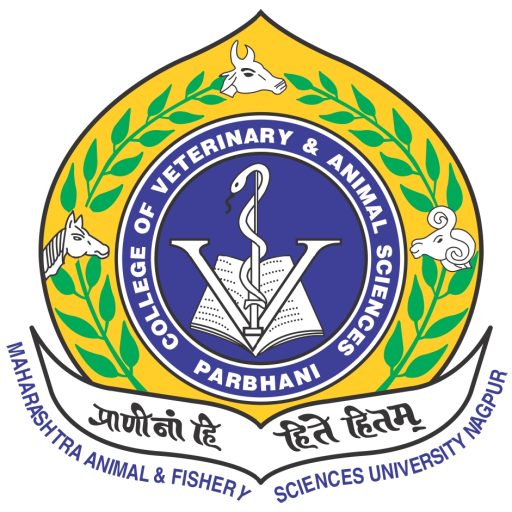Veterinary Microbiology
History
The Department of Veterinary Microbiology was established in the year 1974. The postgraduate programme was started in the year 1976 and Ph.D (by research) was initiated in the year 1980. Total 70 students have completed their M.V.Sc. degree. Four students have been awarded Ph.D (by research).
The department of Veterinary Microbiology offers courses in veterinary bacteriology, veterinary virology, veterinary immunology and veterinary mycology. The department consists of well established laboratories, such as bacteriology laboratory, immunology laboratory, tissue culture laboratory and well equipped postgraduate laboratory and undergraduate laboratories. Animal Biotechnology Education and Research cell was established in the year 2008. The important contribution of this department is isolation and identification of bluetongue virus. The bluetongue disease (BT) outbreak was recorded in the sheep population of Marathwada region in the year 1985. The causative virus was isolated and typed from South Africa, as BTV serotype 9 and 18.
This department is having well equipped Animal Cell Culture laboratory for virological work. The Animal Biotechnology Education and Reserach Cell is offering molecular characterisation of viruses prevailing in the region. Till date 9 sequences of partial VP1 parovirus, 5 sequences of B2L gene of contageous ecthyama and 38 sequnces comprising of 3 complete rotavirus and 5 VP7 genes were submitted to NCBI.
The Department offers diagnostic services to the field veterinarians and the farmers for the diagnosis of diseases. The scientist visit the reported outbreaks for collection of morbid specimens and provides rapid diagnosis for saving mortality in animals and further suggest suitable biosecurity measures and vaccination programmes. The department has successfuly diagnosed outbreaks of HS, BQ, Anthrax, PPR, FMD, Newcastle disease and many other infectious diseases.
FACULTY

Dr. P.R. Suryawanshi
M.V.Sc., Ph.D.
Assistant Professor
- Isolation of bluetongue virus and identification of serotype.
- Establishment of Animal Disease Research Centre for diagnosis of diseases.
- Research project on Brucellosis and reduction in incidence of Brucellosis on university farms.
- Brucella abortus biotype 6 was identified and confirmed.
- Establishment of laboratory for characterization of plasmid DNA and prokaryotic chromosomal DNA.
- Providing prompt diagnostic services which helps in control of outbreaks in animals and poultry.
- Organization of 6th Annual conference and symposium of Indian Association of Veterinary Microbiologist, Immunologist and Specialists in Infectious diseases 1985.
- C. M. Singh award for the best research article.
- Outstanding and meritorious Veterinary service award.
- Isolation of Listeria Spp. From milk and meat for the first time in Marathwada region.
- Actively participated in arranging VIBCON – 2017 | Recent Trends in Veterinary Immunology and Biotechnology for Doubling Farmers’ Income through Livestock Health and Production | 5 to 7 December 2017
- DBT STAR COLLEGE scheme component funded by Department of Biotechnology, New Delhi for UG students
- Establishment of diagnostic laboratory under RKVY strengthning of TVCC
- Molecular characterisation and epidemiology of rotaviruses in human and animals
- Evaluation of bacteriophages against antibiotic resistant bacteria affecting livestock
Future Plans
- Development of Molecular diagnostic methodologies for infectious diseases important to the region
- Serosurveillance of major infectious diseases of the region
- Development of rapid point of care diagnostic tools
- Creation of training facility for field Veterinarians
Services provided
- Antibiotic Sensitivity Tests
- Disease diagnosis
- Brucella diagnosi
